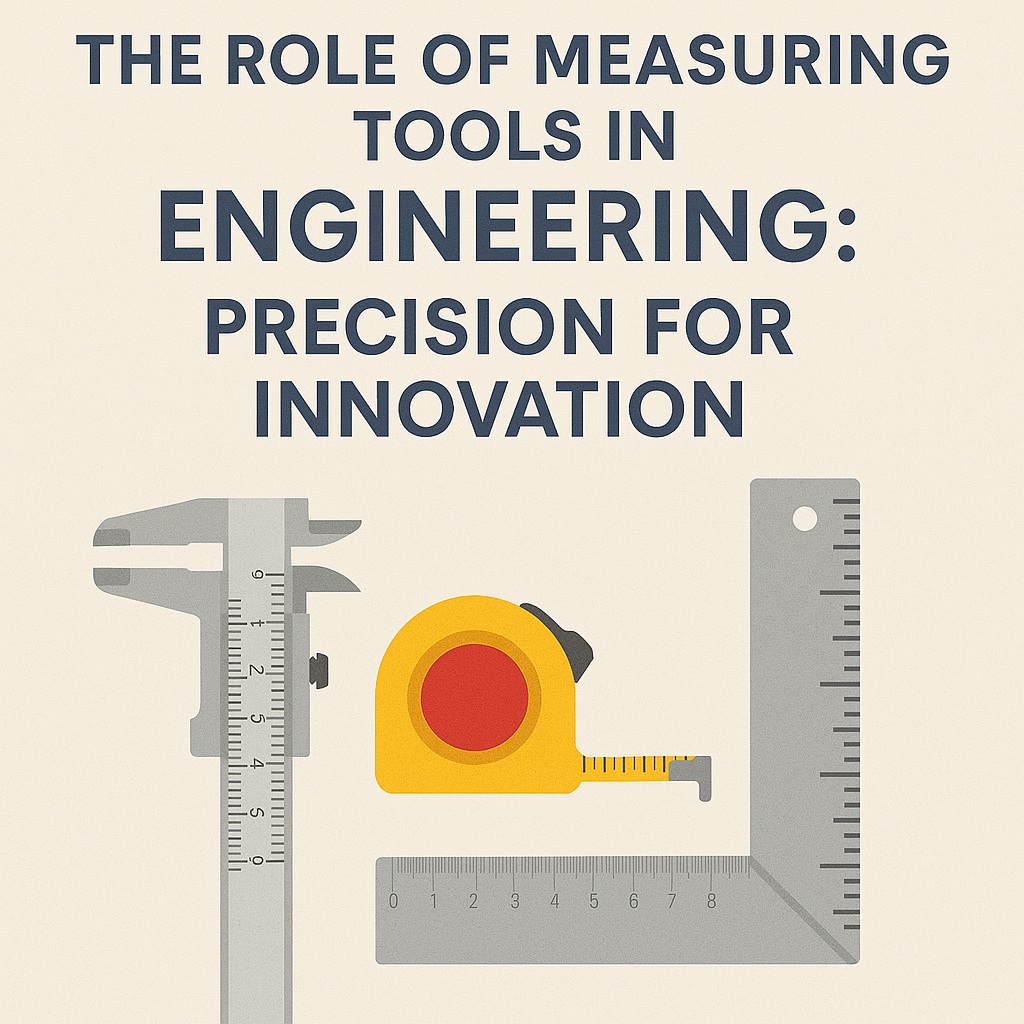In the world of engineering, precision is everything. Whether it’s designing skyscrapers, manufacturing machinery, or crafting intricate circuits, accuracy is crucial to success. Measuring tools play a fundamental role in ensuring that every calculation, dimension, and specification meets the required standards. Without reliable measurement instruments, engineering projects would lack consistency, leading to potential failures and inefficiencies.
Why Are Measuring Tools Important in Engineering?
Engineering relies on precise measurements to maintain safety, efficiency, and functionality. Even the slightest error in measurement can lead to disastrous consequences in industries such as construction, aerospace, and electronics. Here’s why measuring tools are indispensable in engineering:
- Ensuring Accuracy: High precision is essential in structural designs, mechanical parts, and electrical circuits.
- Quality Control: Manufacturing industries use measuring tools to maintain consistency in production.
- Safety Compliance: Engineering projects must meet strict safety regulations, which depend on accurate measurements.
- Efficiency and Productivity: Precise tools reduce material wastage and improve project completion time.
Common Measuring Tools Used in Engineering
Engineering covers a vast array of disciplines, each requiring specialized measuring instruments. Here are some of the most commonly used tools:
1. Calipers
Calipers are essential for measuring the dimensions of objects with high accuracy. They come in various types:
- Vernier Calipers: Provide highly precise readings for both external and internal measurements.
- Digital Calipers: Offer electronic readings for easier accuracy.
- Dial Calipers: Feature a dial indicator for quick and precise measurements.
2. Micrometers
Micrometers are used to measure small distances with extreme accuracy, making them ideal for mechanical engineering and machining. They come in different forms:
- Outside Micrometer: Measures external dimensions like the thickness of a component.
- Inside Micrometer: Used for internal diameters of holes or pipes.
- Depth Micrometer: Measures depths of slots, holes, or recesses.
3. Measuring Tape
A basic yet essential tool, measuring tapes are widely used in civil engineering, carpentry, and construction. They come in both flexible and rigid types for different applications.
4. Rulers and Straightedges
Used for basic length measurements, rulers and straightedges are indispensable for drawing precise lines and ensuring alignment in mechanical designs.
5. Spirit Levels
These tools help engineers check whether a surface is perfectly horizontal or vertical, ensuring correct alignment in construction and woodworking projects.
6. Theodolites and Total Stations
Used in surveying and civil engineering, these instruments help measure angles, distances, and elevations accurately.
7. Multimeters
Essential in electrical and electronic engineering, multimeters measure voltage, current, and resistance to diagnose electrical circuits.
8. Laser Distance Meters
These modern tools use laser technology to measure distances with pinpoint accuracy, often used in architectural and industrial applications.
The Evolution of Measuring Tools in Engineering
With advancements in technology, measuring tools have evolved significantly. Traditional analog instruments are being replaced by digital tools that offer higher accuracy, ease of use, and faster readings. The rise of smart measuring tools with Bluetooth connectivity and data storage capabilities has further improved engineering efficiency.
Conclusion
From simple rulers to high-tech laser measuring devices, measuring tools are the backbone of engineering. They help engineers achieve accuracy, maintain quality standards, and ensure project success. As technology continues to advance, the role of precise measurement in engineering will only grow stronger, shaping the future of industries worldwide.By using the right measuring tools, engineers can turn their innovative ideas into reality with precision and reliability. What are your favorite measuring tools for engineering applications? Let us know in the comments!
